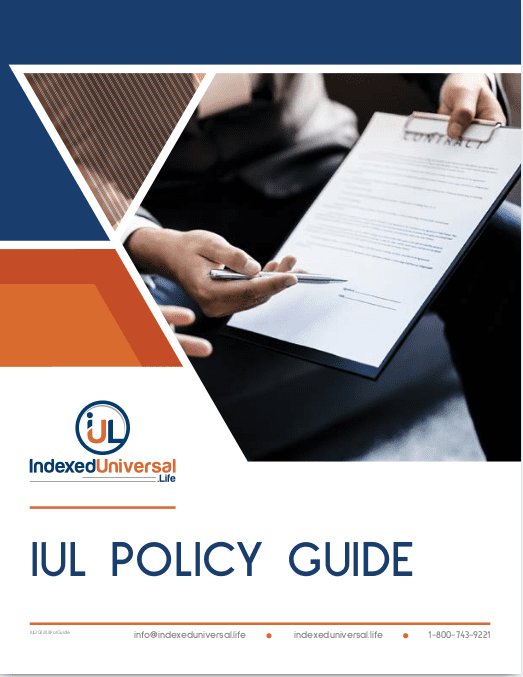All Categories
Featured
Table of Contents
Do they compare the IUL to something like the Lead Total Supply Market Fund Admiral Shares with no lots, an expense proportion (EMERGENCY ROOM) of 5 basis points, a turnover ratio of 4.3%, and an exceptional tax-efficient record of distributions? No, they contrast it to some awful actively handled fund with an 8% tons, a 2% EMERGENCY ROOM, an 80% turn over proportion, and a terrible document of short-term capital gain distributions.
Common funds frequently make yearly taxed circulations to fund proprietors, also when the worth of their fund has gone down in worth. Common funds not just need earnings coverage (and the resulting annual tax) when the mutual fund is rising in worth, however can likewise impose earnings taxes in a year when the fund has actually gone down in value.
That's not exactly how mutual funds work. You can tax-manage the fund, harvesting losses and gains in order to minimize taxable circulations to the capitalists, however that isn't somehow going to transform the reported return of the fund. Just Bernie Madoff kinds can do that. IULs prevent myriad tax traps. The possession of common funds might require the shared fund proprietor to pay estimated taxes.

IULs are easy to position to ensure that, at the proprietor's fatality, the beneficiary is not subject to either earnings or estate tax obligations. The exact same tax decrease techniques do not work virtually as well with shared funds. There are countless, commonly costly, tax obligation catches related to the timed purchasing and marketing of shared fund shares, traps that do not relate to indexed life insurance policy.
Chances aren't really high that you're going to go through the AMT because of your common fund circulations if you aren't without them. The remainder of this one is half-truths at best. As an example, while it holds true that there is no income tax due to your beneficiaries when they inherit the proceeds of your IUL policy, it is also real that there is no revenue tax as a result of your successors when they acquire a mutual fund in a taxable account from you.
Books On Indexed Universal Life
The government inheritance tax exception limit is over $10 Million for a pair, and expanding yearly with inflation. It's a non-issue for the large majority of physicians, a lot less the rest of America. There are far better means to stay clear of estate tax issues than getting financial investments with low returns. Mutual funds may trigger earnings tax of Social Safety and security benefits.

The development within the IUL is tax-deferred and may be taken as free of tax income using car loans. The policy proprietor (vs. the common fund manager) is in control of his/her reportable earnings, thus allowing them to lower or even get rid of the tax of their Social Safety and security advantages. This is wonderful.
Below's an additional minimal concern. It's real if you acquire a shared fund for say $10 per share just prior to the distribution day, and it disperses a $0.50 distribution, you are then mosting likely to owe taxes (possibly 7-10 cents per share) regardless of the truth that you haven't yet had any gains.
In the end, it's truly concerning the after-tax return, not how much you pay in taxes. You're additionally probably going to have more cash after paying those taxes. The record-keeping needs for possessing shared funds are dramatically a lot more complex.
With an IUL, one's records are maintained by the insurance policy business, copies of annual statements are mailed to the owner, and circulations (if any kind of) are completed and reported at year end. This is likewise kind of silly. Of course you must keep your tax obligation documents in case of an audit.
Indexed Life Policy
Barely a reason to acquire life insurance policy. Shared funds are generally part of a decedent's probated estate.
On top of that, they undergo the delays and expenses of probate. The earnings of the IUL policy, on the other hand, is always a non-probate distribution that passes beyond probate directly to one's named recipients, and is as a result not subject to one's posthumous financial institutions, unwanted public disclosure, or similar delays and prices.
Medicaid disqualification and life time revenue. An IUL can give their proprietors with a stream of revenue for their entire life time, no matter of exactly how long they live.

This is helpful when organizing one's events, and converting assets to income prior to a retirement home arrest. Mutual funds can not be transformed in a comparable manner, and are almost always taken into consideration countable Medicaid assets. This is one more foolish one promoting that bad people (you understand, the ones who require Medicaid, a government program for the inadequate, to spend for their assisted living home) ought to use IUL rather than mutual funds.
Universal Life Option A
And life insurance policy looks awful when contrasted fairly against a pension. Second, individuals who have money to acquire IUL over and beyond their pension are going to need to be awful at managing cash in order to ever certify for Medicaid to pay for their retirement home costs.
Persistent and incurable illness biker. All policies will certainly enable an owner's easy access to cash money from their policy, usually forgoing any type of surrender charges when such people suffer a severe illness, need at-home care, or end up being restricted to an assisted living facility. Shared funds do not give a similar waiver when contingent deferred sales costs still put on a common fund account whose proprietor requires to offer some shares to money the costs of such a stay.
Universal Life Insurance Broker
You obtain to pay even more for that benefit (motorcyclist) with an insurance coverage policy. Indexed universal life insurance coverage supplies fatality benefits to the recipients of the IUL owners, and neither the owner neither the recipient can ever lose cash due to a down market.
I absolutely do not need one after I get to monetary independence. Do I desire one? On standard, a purchaser of life insurance pays for the true cost of the life insurance advantage, plus the costs of the policy, plus the profits of the insurance policy firm.
Universal Underwriters Life Insurance
I'm not entirely sure why Mr. Morais tossed in the entire "you can not shed money" again below as it was covered fairly well in # 1. He simply intended to repeat the ideal marketing factor for these points I expect. Once more, you don't lose nominal dollars, yet you can lose actual bucks, as well as face major opportunity price as a result of low returns.

An indexed global life insurance coverage policy owner might trade their plan for a totally different policy without activating income tax obligations. A common fund owner can not move funds from one shared fund firm to one more without marketing his shares at the former (hence triggering a taxed event), and repurchasing new shares at the last, often based on sales costs at both.
While it holds true that you can exchange one insurance coverage for an additional, the factor that people do this is that the initial one is such an awful plan that also after acquiring a new one and going through the early, adverse return years, you'll still come out in advance. If they were marketed the right plan the very first time, they shouldn't have any type of need to ever before exchange it and experience the early, negative return years once more.
Latest Posts
Equity Index Universal Life Insurance
Iul Death Benefit
Universal Life Insurance Retirement